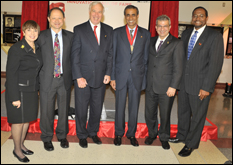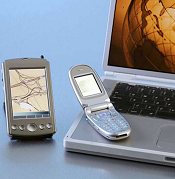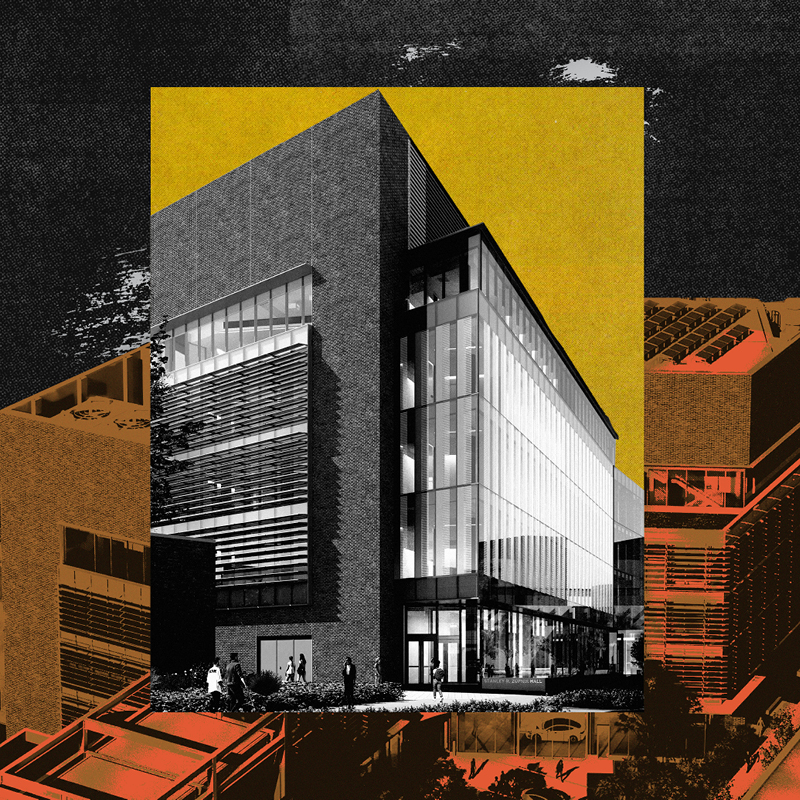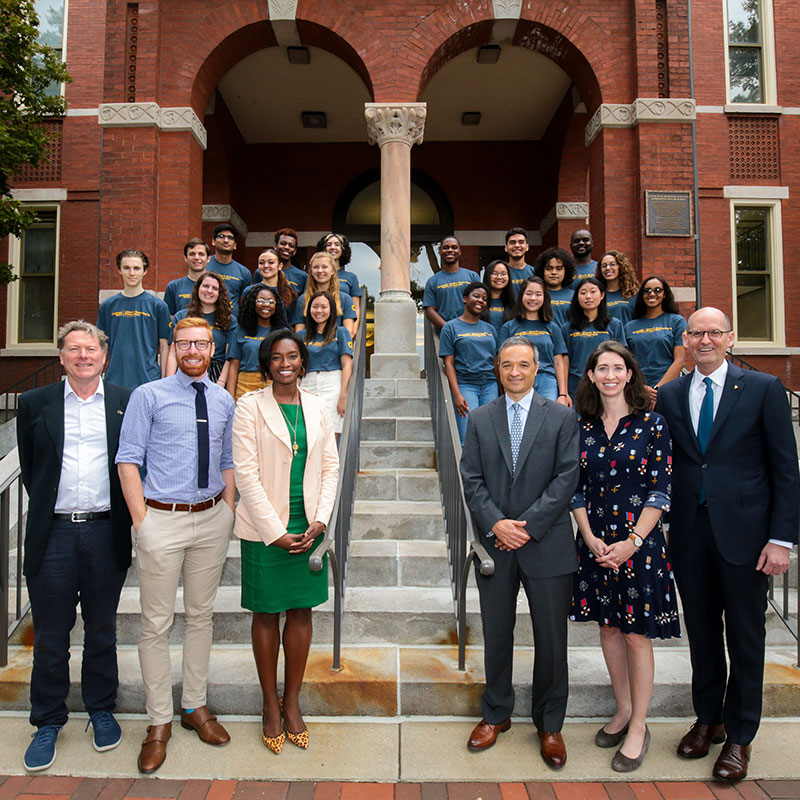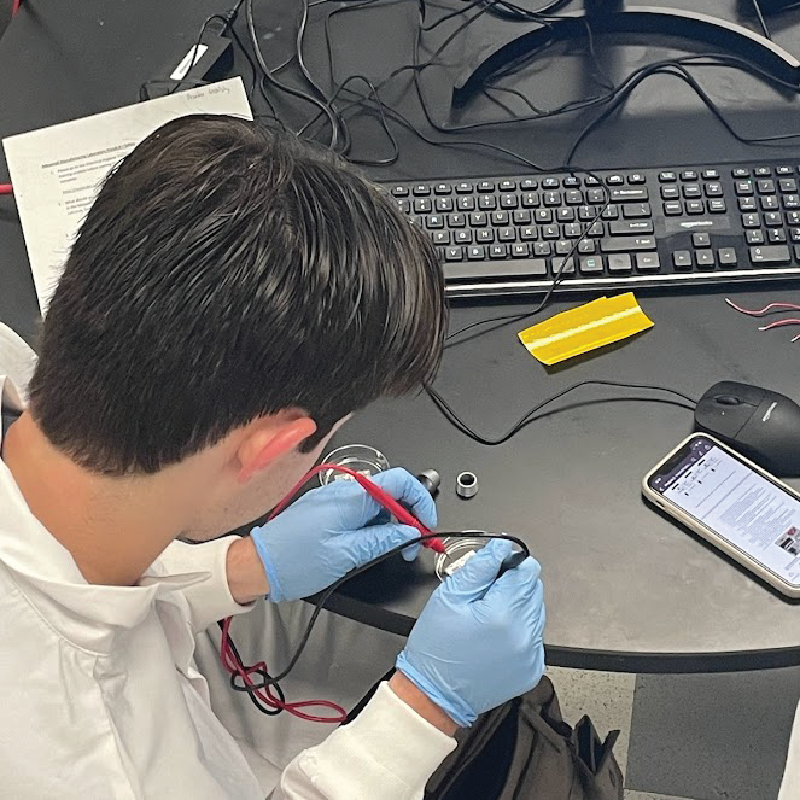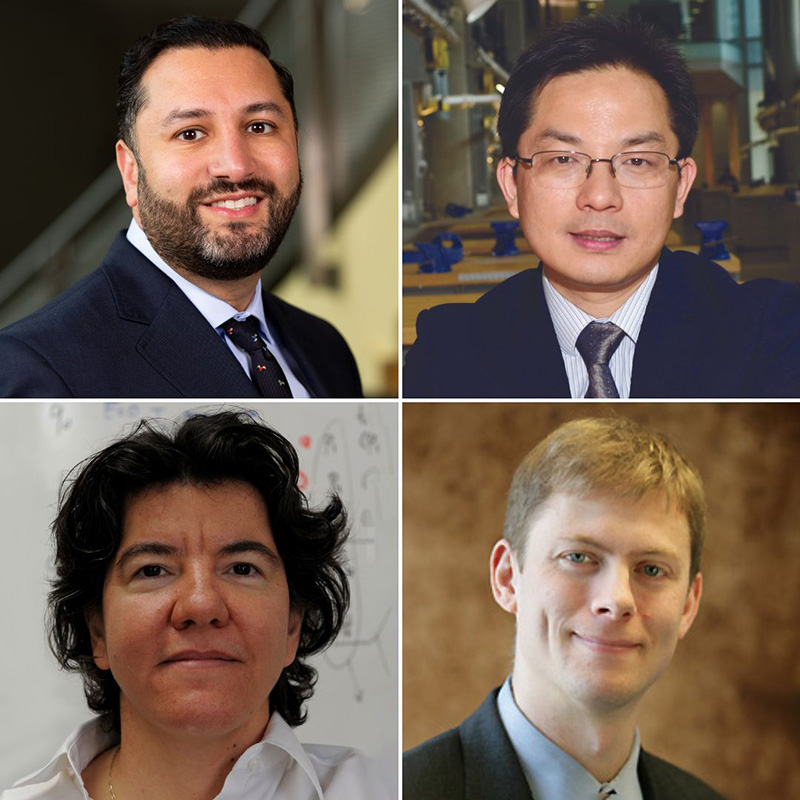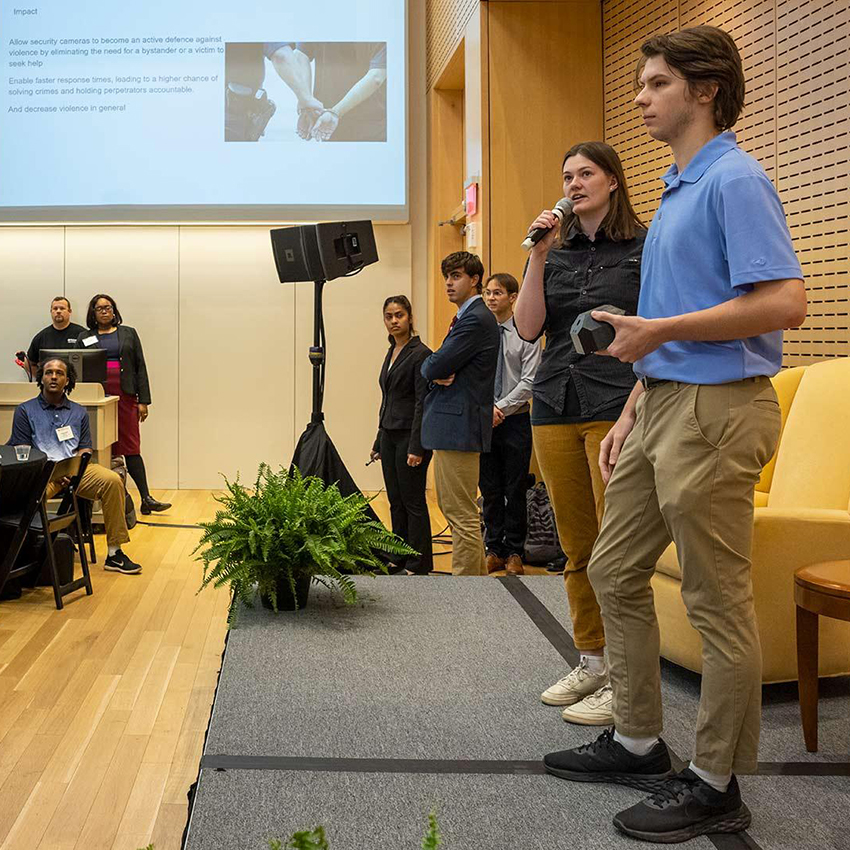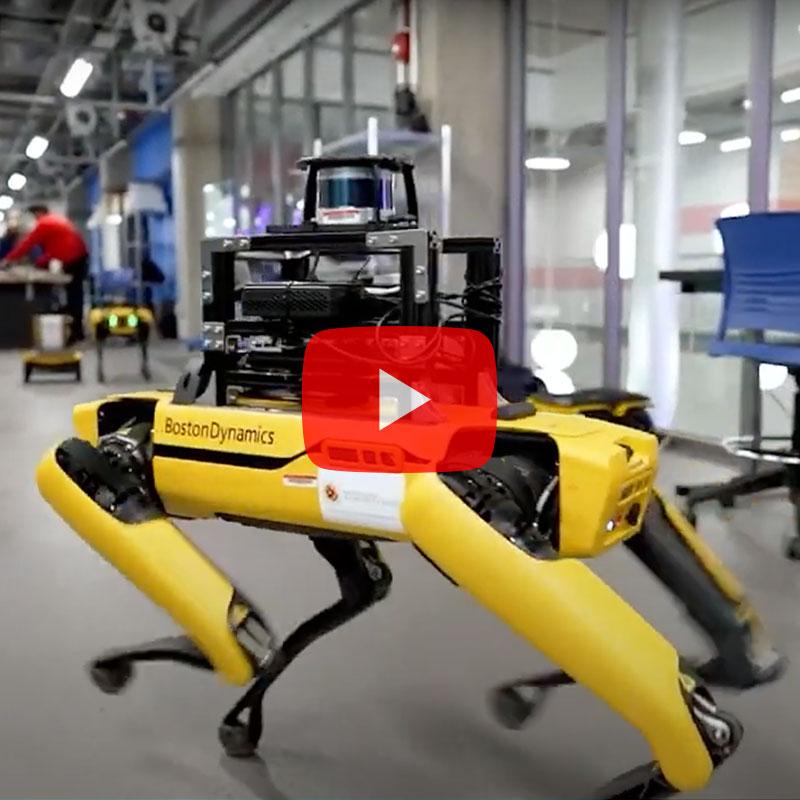How Your Cell Phone Keeps Its Cool
November 16, 2009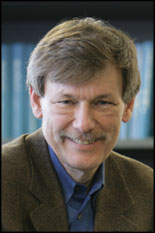
Fortunately, we don't have to manage things like that. Our electronics handle it all very well, remaining cool even as they continue to shrink in size and grow in capabilities.
For this we can thank Avi Bar-Cohen, Distinguished University Professor and chair of the Department of Mechanical Engineering at the Clark School of Engineering, University of Maryland. Bar-Cohen has made figuring out how to keep electronics cool a major theme of his career. His ideas stand behind the technologies we rely on every day, from cell phones and MP3 players to supercomputers and flight guidance systems.
That's why the International Center for Heat and Mass Transfer has recognized Bar-Cohen as a seminal figure in thermal science and engineering, and awarded him the prestigious Luikov Medal.
The Luikov Medal recognizes "outstanding contributions to the science and art of heat and mass transfer" and contributions to the international community of heat transfer specialists.
"Professor Bar-Cohen's research laid the foundation for today's state-of-the-art, minimum-energy solutions for air cooling of electronics," comments fellow professor Reinhard Radermacher. "His studies of the complex thermofluid phenomena in electronic enclosures established the performance limits and methodologies for cooling avionic systems and supercomputers. He pioneered new methods of temperature control for computer chips and printed circuit boards. He has educated thousands of electrical and mechanical engineers on the application of advanced thermal management concepts and modeling techniques for electronic products."
Bar-Cohen has written and edited numerous books and papers, delivered major lectures, and advised many engineering graduate students. He holds seven U.S. patents. He has been honored by the major professional organizations in his field.
His work has provided the techniques and tools needed to support the remarkable miniaturization, increased reliability, and functional capability that have been achieved in electronic products, from cell phones to supercomputers and from laptops to avionics.
Bar-Cohen has been the major contributor to the development of the scientific foundation for thermal management of electronic systems and has played a leading role in the successful transformation of the electronic industry to widespread implementation of frontier breaking thermal science and technology.
His development of physics-based composite equations for natural convection heat transfer in parallel plate arrays brought scientific rigor to a previously empirical domain and provided the foundation for today's state-of-the-art minimum-energy solutions for air cooling of electronics. He pioneered the use of compact thermal models for fast analytical and numerical solutions for the temperature of packaged chips and populated printed circuit boards. He has educated thousands of electrical and mechanical engineers on the application of advanced thermal management concepts and modeling techniques for electronic products.
The widespread implementation of his concepts and incorporation of his modeling approaches the early CAD tools, has underpinned the performance, miniaturization, and reliability of today's electronic products, including a x10 improvement in air-cooling capability with comparable finned heat sink weight reductions. His current work is focused on efficient cooling of kW/cm2 on-chip hot spots and immersion cooling of kW/cm3 heat density chip stacks and 3D packages.
Bar-Cohen received his bachelor's, master's and Ph.D. degrees from the Massachusetts Institute of Technology. He has been chair of the Department of Mechanical Engineering in the Clark School of Engineering since 2001 and was named Distinguished University Professor in 2005.
The Luikov Medal, awarded by the International Centre for Heat and Mass Transfer to one individual every two years, is dedicated to Aleksey Vassillevich Luikov, a renowned Russian pioneer in the field of heat transfer and thermophysics. The Medal will be presented to Bar-Cohen at the 14th International Heat Transfer Conference in Washington, D.C., in August 2010.
